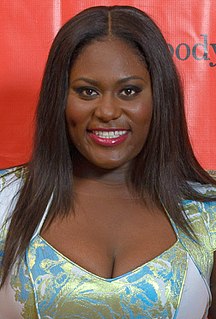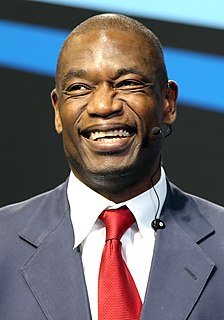A Quote by Sarah Silverman
And then before going back for my sophomore year, I decided to change my major to arts and sciences, and my dad cut a deal with me: He said if I'd quit school he'd pay my rent for the next three years, as if I were in school.
Related Quotes
I had this whole plan when I graduated high school: I was going to go to college, date a few guys, and then meet THE guy at the end of my freshman year, maybe at the beginning of my sophomore year. We'd be engaged by graduation and married the next year. And then, after some traveling, we'd start our family. Four kids, three years apart. I wanted to be done by the time I was 35.
I changed my major to English literature, which was on the advice of my father. I finally said, "You know, Dad, to heck with it: I'm just going to be an actor. But I'm going to go to school." And he said, "Well, if you're going to go to school, then major in English literature. Those are the tools you are going to be working with as a man who's going to be acting in English, one would assume."
I decided to be a filmmaker between my sophomore and junior years at Morehouse. Before I left for the summer of 1977, my advisor told me I really had to declare a major when I came back, because I'd used all my electives in my first two years. I went back to New York and I couldn't find a job. There were none to be had. And that previous Christmas someone gave me a Super-8 camera, so I just started to shoot stuff.
At first, after my freshman year, it was kind of a joke, going into my sophomore year like, 'Hey, I wanna graduate in three years, two-and-a-half.' And we were just kind of playing with it, added some extra classes in, and then once I finished that following spring going into that next summer, it was just like, 'Hey, I can actually do it.'
Living in a bubble as I said in a featherbed of privilege. That's why leaving home, leaving the prep school and going to the University of Michigan in the early '60s was a moment of awakening and to go to a place like Michigan and to see suddenly a world in flames and the injustices all around was quite a wake up call. I lasted a year and a half at Michigan before I dropped out and joined the merchant marines and I was a merchant marine for my sophomore year then I came back to Michigan.
In school, the year was the marker. Fifth grade. Senior year of high school. Sophomore year of college. Then after, the jobs were the marker. That office. This desk. But now that school is over and I've been working at the same place in the same office at the same desk for longer than I can truly believe, I realize: You have become the marker. This is your era. And it's only if it goes on and on that will have to look for other ways to identify the time.
When I was in college at Carnegie Mellon, I wanted to be a chemist. So I became one. I worked in a laboratory and went to graduate school at the University of Pittsburgh. Then I taught science at a private girls' school. I had three children and waited until all three were in school before I started writing.


































